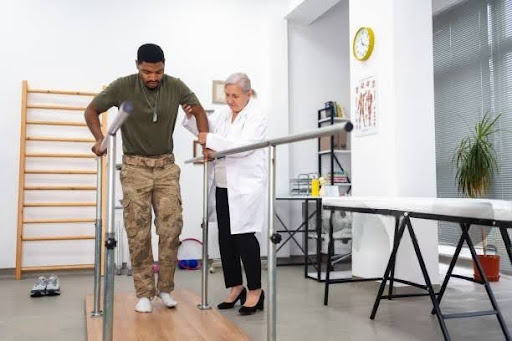Rehabilitation centres play a crucial role in helping individuals recover from substance abuse, addiction, mental health disorders, and other behavioural challenges. These centres provide a supportive environment where individuals can embark on their journey towards healing and recovery. In this blog, we’ll delve into the wide range of facilities available in rehab centres, highlighting the comprehensive care and support they offer to individuals seeking treatment and rehabilitation.
1. Medical Detoxification Facilities:
Many rehab centres offer medical detoxification facilities staffed by medical professionals trained in managing withdrawal symptoms safely and effectively. Medical detox programs provide 24/7 supervision and medical support to individuals undergoing detoxification from drugs or alcohol, ensuring their safety and comfort during the withdrawal process.
2. Residential Treatment Programs:
Residential treatment programs provide individuals with a structured and supportive environment where they can focus fully on their recovery journey. These programs typically offer a range of therapeutic services, including individual counselling, group therapy, family therapy, educational sessions, and recreational activities. Residential treatment centres prioritise creating a safe and nurturing atmosphere conducive to healing and personal growth.
3. Individualized Treatment Plans:
Rehab centres tailor treatment plans to meet the unique needs and goals of each individual. Through comprehensive assessments and evaluations, treatment teams develop personalised plans that address the specific challenges and underlying issues contributing to addiction or mental health disorders. Individualised treatment plans may include a combination of therapy modalities, holistic approaches, and evidence-based interventions to support long-term recovery.
4. Dual Diagnosis Treatment:
Many individuals struggling with addiction also experience co-occurring mental health disorders such as depression, anxiety, trauma, or bipolar disorder. Rehab centres that offer dual diagnosis treatment address both substance abuse and mental health issues simultaneously, recognising the interconnected nature of these conditions. Dual diagnosis programs integrate specialised therapies and psychiatric care to provide holistic support for individuals with complex treatment needs.
5. Holistic Therapies and Wellness Programs:
Rehab centres often incorporate holistic therapies and wellness programs into their treatment approach to promote physical, emotional, and spiritual well-being. These may include yoga, meditation, mindfulness practices, art therapy, music therapy, equine therapy, nutritional counselling, fitness activities, and outdoor experiential therapies. Holistic therapies help individuals develop coping skills, reduce stress, enhance self-awareness, and cultivate a balanced and healthy lifestyle.
6. Aftercare and Continuing Support:
Recovery from addiction is a lifelong journey that requires ongoing support and commitment. Rehab centres provide aftercare planning and continuing support services to individuals transitioning from residential treatment back to their communities. Aftercare programs may include outpatient therapy, sober living arrangements, support groups, alumni networks, relapse prevention strategies, and access to community resources. These services help individuals maintain their sobriety, navigate challenges, and build a strong foundation for sustainable recovery.
7. Family Involvement and Support:
Rehab centres recognise the importance of involving family members and loved ones in the recovery process. Family therapy sessions, educational workshops, and support groups provide opportunities for families to learn about addiction, improve communication skills, address family dynamics, and strengthen relationships. Family involvement fosters understanding, empathy, and a supportive network for individuals in recovery, promoting healing and reconciliation within the family unit.
8. Vocational Training and Life Skills Development:
Many rehab centres offer vocational training programs and life skills development workshops to help individuals build practical skills and prepare for successful reintegration into society. These programs may include job readiness training, resume building, interview preparation, budgeting and financial management, time management, and communication skills.
Conclusion:
In conclusion, rehab centres offer a comprehensive array of facilities and services designed to support individuals on their journey to recovery from addiction and mental health disorders.
As individuals seek treatment and support in their recovery journey, rehab residential programs stand as beacons of hope, offering compassion, empowerment, and a pathway to lasting sobriety and wellness.

